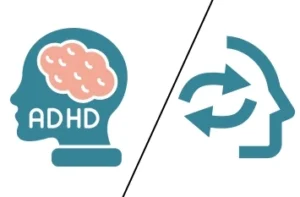
How to Recognize the Early Signs of ADHD in Adults and Children
How to Recognize the Early Signs of ADHD in Adults and Children ADHD (Attention-Deficit/Hyperactivity Disorder) is often misunderstood, with many assuming it’s something that only

In a world that often demands constant productivity and resilience, the importance of mental well-being cannot be overstated. Encouraging someone to seek therapy can be a delicate yet crucial step toward promoting their mental health. Therapy offers a safe space for individuals to explore their thoughts and emotions, providing tools to cope with life’s challenges. The stigma surrounding mental health is gradually dissipating, but convincing someone to go to therapy remains a nuanced task.
In this blog, we will explore effective strategies and compassionate approaches to help you navigate this conversation, fostering an environment where seeking therapy is seen as a positive and empowering choice. Whether you are a concerned friend, family member, or someone personally contemplating therapy, these insights aim to guide you in the delicate process of convincing others to take that transformative step toward mental well-being.
Broaching the subject of therapy requires tact, empathy, and a genuine concern for someone’s well-being. Begin by choosing an appropriate setting, ensuring privacy and comfort. Express your observations without judgment, emphasizing specific behaviors or changes that have raised concerns.
Use “I” statements to convey your feelings, avoiding accusations. It’s essential to highlight the potential benefits of therapy, such as gaining coping mechanisms, self-discovery, and improved overall well-being. Share your own positive experiences with therapy if applicable, reducing the stigma associated with seeking professional help.
Be patient and understanding, allowing the individual to process the information at their own pace. Ultimately, frame the conversation around support and growth, emphasizing that therapy is a courageous step towards a healthier, more fulfilling life.
Encountering resistance when suggesting therapy is not uncommon, and navigating this situation with sensitivity is crucial. Firstly, acknowledge and validate their feelings, demonstrating empathy for their perspective. Encourage open communication, providing a non-judgmental space for them to express their concerns. Be patient, understanding that readiness for therapy may take time. If met with resistance, consider offering alternative resources, such as self-help books, support groups, or online mental health resources.
Remember that pushing too hard may create further reluctance, so maintaining a supportive and understanding stance is key.

Encourage Open Dialogue: Foster an environment where they feel comfortable sharing their reservations or fears about therapy.
Provide Alternative Resources: Suggest self-help books, apps, or support groups as less intimidating alternatives to professional therapy.
Offer to Attend Together: Propose attending a therapy session together, emphasizing that you are willing to support and accompany them through the process.
Convincing someone to seek therapy is a delicate process that requires empathy, understanding, and effective communication. Start by expressing your concern in a non-judgmental manner, emphasizing your care for their well-being. Share information about the benefits of therapy, highlighting its transformative potential.
Utilize active listening to understand their apprehensions and address them with compassion. Here are eight techniques to guide you through the process:
Educate About Therapy: Provide information on what therapy entails, debunking myths and misconceptions.
Share Success Stories: Narrate positive experiences of individuals who have benefited from therapy, creating a more relatable perspective.
Highlight Personal Growth: Emphasize how therapy can contribute to personal growth, self-awareness, and enhanced coping mechanisms.
Offer Emotional Support: Assure them that seeking help is a sign of strength and that you are there to support them throughout their journey.
Normalize Therapy: Stress that therapy is a common and accepted practice for improving mental health and reducing the associated stigma.
Address Concerns: Take time to listen to their concerns and fears, addressing them patiently and reassuringly.
Collaborative Approach: Frame therapy as a collaborative effort towards a healthier, happier life, involving them in the decision-making process.
Highlight Specific Issues: If applicable, discuss specific issues they are facing and how therapy can provide tailored solutions, making it more personalized and relevant.
Taking the step to connect with a therapist is a commendable decision toward prioritizing mental health. Start by researching local therapists or online platforms that match your preferences and needs. Many therapists provide contact information on their websites, making it easy to reach out via phone or email.
When reaching out, briefly introduce yourself, express your interest in therapy, and inquire about their availability. Some therapists offer free consultations, providing an opportunity to discuss your concerns and assess the therapeutic fit.
Don’t hesitate to ask questions about their approach, expertise, and fees to ensure a comfortable and informed decision. Remember, reaching out to a therapist is the first step on a transformative journey toward better mental well-being.
Initiating a conversation with a therapist can be a pivotal moment in your mental health journey. The therapeutic relationship is built on trust and open communication. Begin by sharing a brief overview of your current challenges and what you hope to achieve through therapy. Honesty is key, so don’t hesitate to express your emotions and concerns.
Here are some steps and strategies to guide you through talking to a therapist:
Encouraging someone to attend therapy is a compassionate journey toward improved mental well-being. By approaching the conversation with empathy, providing information, and fostering a supportive environment, you contribute to a positive step in their life’s transformation.

How to Recognize the Early Signs of ADHD in Adults and Children ADHD (Attention-Deficit/Hyperactivity Disorder) is often misunderstood, with many assuming it’s something that only

The Holistic Approach to Depression: A Comprehensive Guide Depression, a condition affecting millions worldwide, often calls for more than just conventional treatments. The holistic approach

Understanding How Bipolar Thinking Affects Relationships: Insights and Strategies for Support Get Instant Relief Now! Borderline Personality Disorder (BPD) is a complex mental health condition
